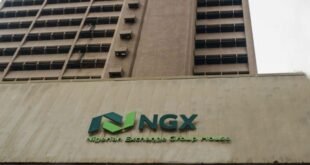Dangote Petroleum Refinery recently announced the third price adjustment in six weeks, moving the price of the ex-depot down the N30 to the N835 per liter from the N880 per liter. New prices are predicted to affect product importers, which may lose average N466.62 million every day and N13.998 billion monthly.
Over the past two years, the Nigerians have experienced policy effects around gasoline production and consumption, by questioning the prospects of this policy. Dangote Refinery has significantly made efforts to ease the burden, but consumers are in mercy with international prices that fluctuate and domestic distribution challenges.
Following the removal of the gasoline subsidy of President Ahmed Tinubu in May 2023, the average daily consumption rate made a steep dive. From January to May 2023, the average gasoline consumption of 66.9 million liters every day, recorded the highest in the last decade. However, from June to December 2023, consumption fell to 47.5 million liters per day after subsidies were removed.
This decline continued until 2024, with numbers -the number showed 51.8 million liters per day from January to August, and 49.8 million liters from September to now.
The difference between numbers before and after subsidies has caused broad suspicion that a lot of consumption reported under the subsidized regime may have increased. Analysts believe that the large volume of subsidized gasoline is smuggled across the border to neighboring countries where the price of fuel is significantly higher.
Also read: Ripplesmetrics: Nigeria lost N59.33 billion in five years due to fraud
The trend of consumption and import of Nigerian gasoline over the past decade presents a complex picture of policy steps, fuel smuggling, and fiscal tension. The latest data shows that while daily gasoline consumption has decreased significantly after the removal of subsidies in 2023, the volume of imports and the cost of historical subsidies continues to cause concerns about the integrity of the downstream sector of the country.
Despite falling consumption, Nigerian gasoline import rates remain consistently high. In 2022, the country imported 23.54 billion liters of gasoline. Even in 2023, when consumption dropped in the second half of this year, imports amounted to 20.30 billion liters.
Between 2015 and 2023, Nigeria consistently imported between 16.5 billion and 23.5 billion liters per year, even when daily consumption averaged between 48.7 million liters in 2015 to more than 66 million liters in the year before the removal of subsidies.
Payment of Nigerian gasoline subsidies has grown dramatically over the years. From ₦ 220 billion in 2006, the subsidized bill jumped to ₦ 1.90 trillion in 2011, and peaked at ₦ 5.10 trillion which was worrying in 2023, just before the subsidy was removed.
Apart from the transfer, the federal government reportedly spent 4.21 trillion for fuel -related costs in July 2024, implies the possibility of an ongoing intervention or an unresolved obligation. During the 18-year period, Nigeria spent more than ₦ 25 trillion for subsidies that could be distributed into infrastructure, education and health.
By: James Odunayo
Join the conversation
Supports Nigeria’s ripples, resistant Journalism Solutions
A balanced and fearful journalism that is driven by data comes with enormous financial costs.
As a media platform, we ask for leadership accountability and will not trade the right to suppress freedom and freedom of speech for a piece of cake.
If you like what we do, and ready to uphold journalism solutions, please donate to Nigerian ripples cause.
Your support will help ensure that residents and institutions continue to have free access to credible and reliable information for community development.
Donation now
 JamzNG Latest News, Gist, Entertainment in Nigeria
JamzNG Latest News, Gist, Entertainment in Nigeria










